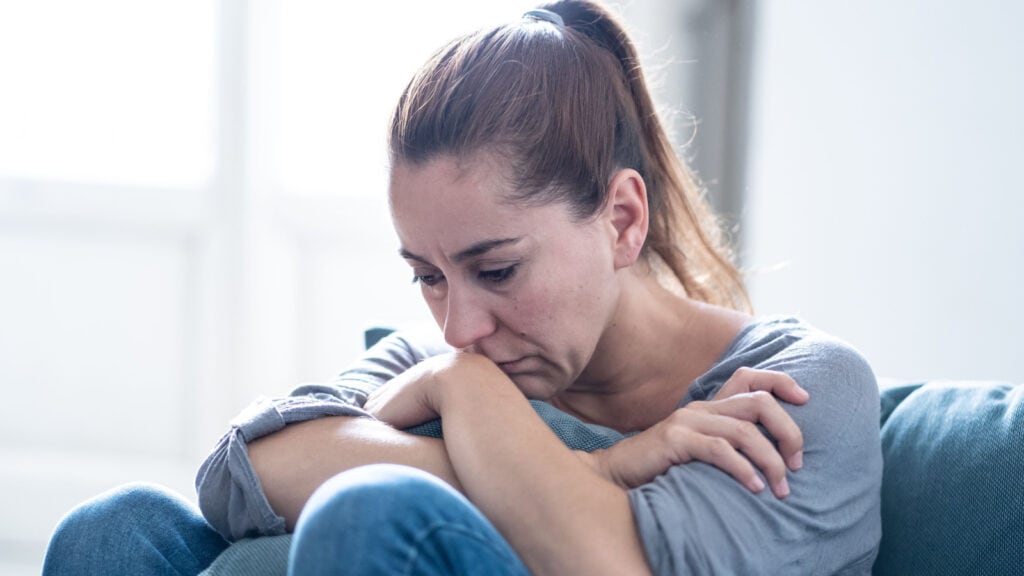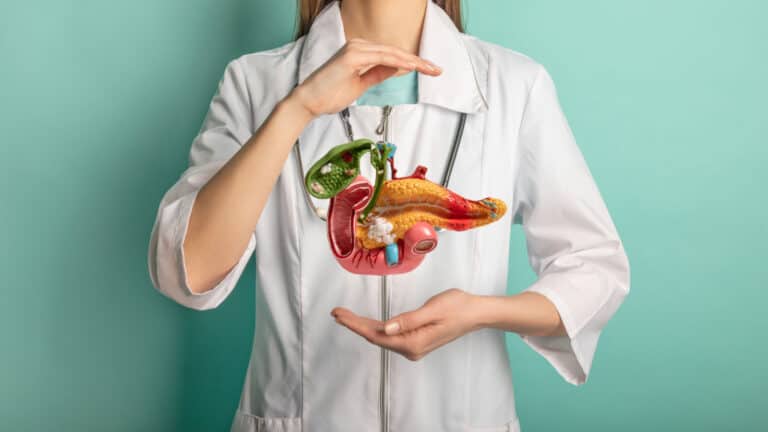IBS & Periods: Understanding the Gut-Period Connection
Are you among the many individuals who have noticed a worsening of IBS symptoms during your menstrual period? If so, you’re not alone. In this comprehensive guide, we’ll delve into the intricate relationship between your period and IBS symptoms, shedding light on why this happens and offering valuable insights on managing and mitigating discomfort.
Hormones, IBS & Your Period

Did you know that female sex hormone receptors are found within the gastrointestinal tract of women? Although research in this area is still limited, it is believed that these receptors may play a pivotal role in the gut-brain axis. Your hormone levels fluctuate throughout the three phases of your menstrual cycle, which are:
- Follicular Phase
- Ovulation
- Luteal Phase
Monthly Hormonal Phases

During the mid-luteal phase, estrogen levels rise before subsequently dropping just prior to menstruation. This drop in hormone levels appears to coincide with an increase in IBS symptoms . Notably, women are twice as likely as men to suffer from IBS, and the hormonal fluctuations during menstruation might provide one plausible explanation for this discrepancy.
Mental Health, Periods & The IBS Connection

Most women experience changes in their mental health in the week leading up to their period, a condition commonly known as premenstrual syndrome (PMS). PMS can manifest with a range of symptoms, including mood swings, anxiety, irritability, and sleep disturbances. Interestingly, these symptoms align with a potential explanation for the exacerbation of IBS symptoms during this period—reduced mood can lead to decreased tolerance or hypersensitivity. This aligns with existing knowledge that links depression and stress to IBS through the gut-brain axis.
How Lifestyle Habits Change During Your Period

Your lifestyle habits can significantly impact your IBS symptoms during your period. Research indicates that women tend to consume more calories and carbohydrates during the luteal phase, which precedes menstruation. This increased intake may lead to larger portion sizes or higher FODMAP consumption, potentially triggering IBS symptoms. FODMAPs are particular carbohydrates that have been clinically proven to trigger IBS symptoms in many sufferers.
The Low FODMAP diet might be suggested by your gastroenterologist or Registered Dietitian as a way to alleviate IBS symptoms.
Exercise and Its Role

Consider the role of exercise in managing IBS symptoms during your period. While you might not initially feel like engaging in physical activity, studies have demonstrated that regular exercise during this time can reduce symptoms.
Simple Steps To Improve Your IBS During Your Period

Understanding the connection between IBS and periods is complex, but there are practical steps you can take to better control your IBS symptoms during this challenging time:
- Daily Movement: Engage in gentle exercises such as yoga, even when vigorous activity feels unappealing.
- Dietary Choices: Pay attention to your diet, considering a reduction in FODMAPs to ease symptoms.
- Portion Control: Weigh out portion sizes to prevent overindulgence.
- Prioritize Sleep: Adequate sleep can help counteract the negative mood impact of hormonal fluctuations.
- Stress Management: Recognize that stress is often a contributing factor to IBS and explore strategies to manage it.
The Takeaway

In summary, IBS symptoms tend to worsen in the week leading up to menstruation due to a combination of hormonal changes and altered lifestyle habits. While we may not have full control over our hormones, adopting good lifestyle habits can help alleviate some of these symptoms. Following a low FODMAP diet during this time may also be beneficial in preventing an IBS flare-up.
Original article written by Kirsten Jackson BSc Hons RD mBDA for FODMAP Everyday®.
More Articles About IBS

Our sister publication FODMAP Everyday® is at the forefront of IBS education, particularly in relation to the low FODMAP diet. We have brought versions of many of the articles here for you:
- Understanding the Relationship Between IBS and Diabetes
- How to Breastfeed if You Have IBS
- IBS Treatment: One Size Does Not Fit All
- Understanding IBS Subtypes and Tailored Treatment
- Are You Sabotaging Your Gut Health? 8 Things to Stop Doing Now
Join Us

Join us on this empowering journey as we explore, celebrate, and elevate “her story.” The Queen Zone is not just a platform; it’s a community where women from all walks of life can come together, share their experiences, and inspire one another. Welcome to a space where the female experience takes center stage. Sign up for our newsletter so you don’t miss a thing, Queen!







